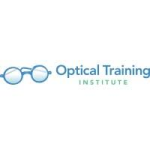If you enjoy working with people and providing care for them, you should consider being an optician.
As an optician, you’ll work with customers who need vision correction.
You’ll create the lenses, repair glasses, and frames, and help customers choose the best frames for their preferences and lifestyle.
You may work in your own office, or you may work with other eye health professionals, including ophthalmologists and optometrists, to provide comprehensive vision care.
What Do Opticians Do?
Opticians are responsible for helping patients choose the right eyeglasses and contacts, and fill the prescriptions provided by optometrists and ophthalmologists.
You’ll learn how to create eyeglasses and contact lenses, and how to read prescriptions.
You’ll work closely with patients to help them make the best choices, and find contacts or glasses that fit their needs and lifestyle.
You won’t diagnose eye problems or write prescriptions.
Instead, you are responsible for filling the prescriptions.
You’ll also teach patients how to care for their glasses or contacts, and how to keep their eyes healthy.
Best Online Optician Training Programs
The best way to begin a career as an optician is, to begin with the right education.
These optician programs will prepare you for certification and a career as an optician.
1. Optical Training Institute
Optical Training Institute focuses on preparing you to pass your certification exams, and continuing education.
To get started as an optician, you can take the ABO Spectacle Dispensing Course, which is $289.
Then, you can take the NCLE Contact Lens Dispensing Course, which is also $289.
Both courses feature 6 workbooks, exercises, and practice tests.
You’ll also have audio files that go along with the workbooks.
The course is self-paced, so you can study on your own time.
Courses include basic lens design, optical principles, anatomy and physiology, lens materials coating, instrumentation, and fitting and verification.
Once you’ve completed these courses, you are ready to take your exams.
After you have been certified, you can continue your education with the Optical Training Institute, which helps you maintain your certification.
2. University of Mexico Continuing Education
The University of Mexico Continuing Education offers optician certification training.
The course prepares students to take the ABO exam and the CLRE exam certification after completing the program.
As part of the program, you’ll learn how to read and assign prescriptions to customers.
You’ll learn about the human eye, how it works, and common eye issues.
You’ll learn about corrective eye care, how they work for patients, and how prisms and lenses work.
In addition to learning the skills you’ll need as an optician, you’ll learn how to communicate with peers, coworkers, and customers.
This course is made up of 150 course hours and costs $1,995.
Most students complete the self-paced program within 6 months.
3. Wake Tech
Wake Tech offers an optician certification program.
In fact, they have two options to choose from.
You can learn to be an optician with the certification program.
This program consists of 150 contact hours.
You will learn about the parts of the eye.
You’ll learn how to read prescriptions and understand different prescriptions and lens types.
You’ll learn how to perform opticianry measurements and calculations.
It’s also important to understand the ethics of being an optician and your legal responsibilities.
Courses include eye anatomy, ocular conditions, and reading a prescription.
Eyeglass courses include frame basics, frame styling, adjusting frames, lens materials, and multifocal lens considerations.
You’ll also have contact lens courses, including soft contact lenses and rigid gas-permeable lenses.
If you want to go more in-depth into managing an optician’s office or owning your own business as an optician, you should consider the optical manager course.
You’ll complete all the courses in the optician certification course.
You’ll also learn how to use QuickBooks Online for bookkeeping, Microsoft Word, and Microsoft Excel.
This course has 390 contact hours.
In addition to preparing for the NOCE and CLRE exams, you’ll learn to edit and print Word documents and Excel worksheets.
You’ll also learn to use advanced Excel formulas and create illustrations and charts.
The course also teaches you basic accounting principles.
You will learn how to use QuickBooks to keep records and perform basic accounting functions as well.
4. Penn Foster
Penn Foster has been offering distance education courses for many years, so they are a great choice for earning your optician certification.
The course will teach you how to fit and dispense eyeglasses, fit contacts, how to read and follow prescriptions that are written by optometrists and ophthalmologists.
You’ll also learn the skills you need to pass the NCLE and ABO exams.
In addition to the program, you’ll get access to an online library, student services, and an online community.
You’ll also have career guidance as you prepare to enter the field.
Penn Foster doesn’t provide the program length and cost of the program on their website, so you’ll need to contact them for these details.
However, they do offer monthly payments that are interest-free.
5. Ogeechee Tech
Ogeechee Tech offers a few programs for opticians.
You can choose an optician diploma.
This program requires 59 semester credit hours, and 1,560 contact hours.
Most students complete the program in 5 semesters, or 2 to 2 1/2 years.
The general education requirements are 6 credit hours, and the optician courses make up 53 credit hours.
The program costs $9.400.
The Associate’s degree program requires you to take more general education classes.
You’ll need to complete 15 credit hours of general education courses for this program.
You’ll also take 56 credit hours of optician courses.
This program also takes 2 and 1/2 years or 5 semesters.
This program costs $10,600.
You’ll need to spend 225 hours in an externship as part of this program as well.
6. Hillsborough Community College
Hillsborough Community College offers an Associate of Science Optician degree.
This program requires 72 credit hours and takes two years to complete.
You’ll learn about ophthalmologic dispensing, ophthalmologic laboratory, vision care clinical, contact lens, contact lens laboratory, and ophthalmologic board review.
You’ll also complete general education classes.
These include natural science, humanities, and mathematics general education.
After completing the program, you’ll have the skills and knowledge you need to take the ABO certification exams.
7. San Diego State University
San Diego State University offers an Optician certification course.
The course is completely online and self-paced, with most students completing the course in less than 6 months.
The course takes 150 hours to complete.
You’ll pay $2,170 for this program.
Courses include The Part of the Eye, Ophthalmic Lens Designs, Refractive Errors, All About Frames, Laws and Guidelines, Hybrid and Scleral Lenses, and Optician Review.
8. Reynolds Community College
Reynolds Community College offers the only accredited optician associate’s degree program in the state.
Upon completing the program, students are ready to take the Virginia Optician Licensing Exam, which is needed to start their career as an optician.
The courses are offered online.
You will need to complete labs and clinical courses, but these can be done near you.
You will learn to interpret prescriptions, create eyewear, and give the proper glasses and contact lenses.
Other topics covered include sales techniques and communication.
What Courses Are in an Online Optician Program?
Exactly what courses you take in an online optician program will depend on the type of program you choose.
However, most programs offer many of the same or similar courses.
General Education Courses
Most programs require you to take a few general education courses.
If you want to earn an optician certificate or diploma, you may only have basic classes in English and math.
If you choose to get an associate’s degree, you can expect to take more advanced general education classes.
You may need to choose an English class, like composition or English 101.
Math classes may include algebra, mathematical modeling, and qualitative skills or reasoning.
You may also need to take a psychology or sociology course, and an arts class.
Some schools also require you to take one or more general elective courses.
You may also want to take a college and career skills course.
Anatomy
During the anatomy course, you’ll learn about the anatomy of the eye and how they function.
You’ll learn about the parts of the eye, including the retina, cornea, and optic nerve.
You’ll also learn about eye issues, including glaucoma, cataracts, and scotoma.
Lens Form Analysis
During this course, you’ll learn about the shape and design of lenses.
You’ll learn about base curves, lens clocks, and power cross.
Lens Material Coatings and Multifocal Designs
You’ll learn about the materials used as lens coatings, and what situations they are appropriate for.
You’ll also learn about the different types of multifocal lenses.
Basic Lens Design and Optical Principles
Basic lens design discusses contact lenses including scleral and corneal lenses.
You’ll also learn about different contact lens materials and the benefits and drawbacks they have.
You’ll learn about profit selection and the base curve of the lens.
Advanced Techniques
During the advanced techniques course, you’ll learn about using contacts for difficult-to-treat conditions.
These include presbyopia, astigmatism, aphakia, and keratoconus.
Difference Between Certification, Diploma, and Associate’s Degree
Most of the optician courses you’ll take will be the same, regardless of the type of program you choose.
However, your general education courses will be significantly different.
Diploma programs focus on basic general education, so you won’t spend much time on these courses.
If you want to get an associate’s degree, you’ll spend more time on general education courses.
Some certifications focus on a particular aspect of being an optician, so your classes will center around that.
Can You Earn an Optician Certification Completely Online?
Yes, you can earn a certificate or degree as an optician completely online.
However, you may need to take certification exams or complete an apprenticeship before beginning your new career.
The basic optician certification exams can now be taken at a testing center or remotely.
However, if you are required to complete an internship, you’ll need to do this in person.
How Long Does it Take to Earn an Optician Certification Online?
You can earn your diploma as an optician in only six months.
However, if you want to get an associate’s degree, you can expect to spend at least 2 years in school.
Some certifications may take even less than 6 months, but this is pretty rare.
Certification and Licensing
While you can get your training completely online, you’ll need to visit a testing center if you want to get your certification.
While certification is not required, it can be helpful for your career.
About half of the states in the U.S. require you to become licensed.
This is similar to certification, but each state has its own test and requirements.
How Much Does an Online Optician Certification Cost?
The cost of an optical certification or diploma varies from school to school.
A diploma or certification can cost $600 to $9,400, with the average cost being $3,000 to $4,000.
An associate’s degree can cost between $4,000 to $10,600.
Certification Cost
To get certified through the ABO-NCLE, you’ll pay $225 for each of the two tests.
If your state requires licensing, you’ll need to pay for this as well.
Final Thoughts
Becoming an optician allows you to work with people in need.
You’ll fill prescriptions and create glasses and contacts for patients.
As vision problems become more common, the need for opticians will only continue to grow.








